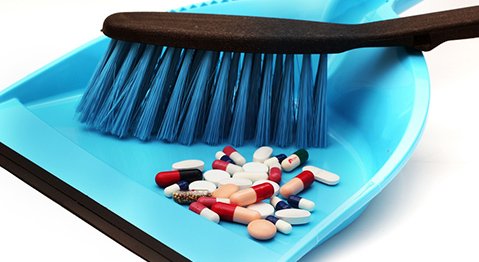Have you ever gone into the medicine cabinet, picked up that bottle of cough syrup you used for the cold you had several years back and realized the medication expired a year ago? Just like over-the-counter medications, prescribed medications also have a “use by” or expiration date. Although medications do not appear to change when they expire, the effectiveness of the medication can change, which can be dangerous or lead to unwanted side effects.
In addition, certain medications, like pain or anxiety medications as well as sleep aids, can be harmful if taken after they have expired and potentially fatal if taken by someone other than who they were initially prescribed for. Discarding unused medications, even when they have not expired, removes the risk of doubling up on the same medication, or accidentally taking an incorrect dose.
The Food and Drug Administration (FDA) recommends discarding all medications immediately once a medication is stopped or changed by your healthcare provider. Medication disposal guidelines are as follows:
- The Clark County Water Reclamation District has a medicine disposal program and multiple locations around the valley. Over-the-counter medications and prescription medications, especially controlled substances, such as hydrocodone, fentanyl, oxycodone, diazepam, methadone, and morphine, should be submitted to a medication disposal program.
- Medications can also be disposed of in the in-store receptacles, just make sure to remove the label, or use a black marker to remove your identifying information.
- If a medication disposal program is not available, non-narcotic medications should be mixed with inedible items such as cat litter, used coffee grounds, or dirt, sealed in a bag, and thrown in the garbage.
- If you have questions about safe disposal contact your healthcare provider or local pharmacy.


